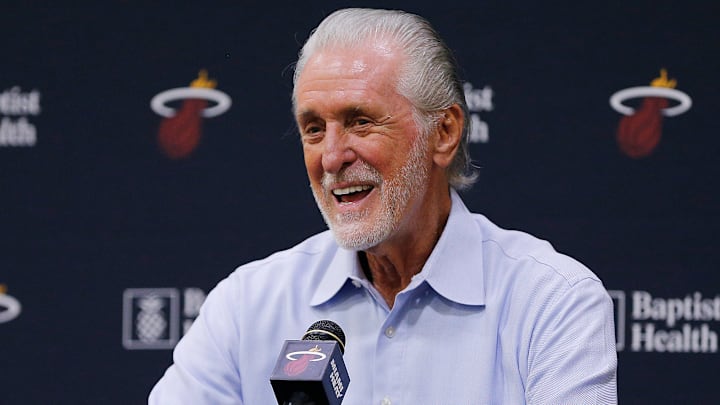Sometimes, it’s the moves NBA teams don’t make that reveal everything. On a related note: The Miami Heat’s decision not to waive Terry Rozier is incredibly telltale.
One of the league’s lesser-discussed deadlines has officially come to pass. As of Saturday, August 30, teams can no longer waive players, and then stretch their salaries across multiple seasons. Technically, the deadline to do this is September 1, but you must also leave a 48-hour cushion for any dispatched contracts to officially clear waivers.
To be sure, stretching Rozier never once seemed like Miami’s most likely plan. It clearly prefers to trade his $26.6 million expiring contract. But as Jake Fischer reported for The Stein Line, interest in the 31-year-old guard is “scant,” which already has the front office thinking about a potential buyout.
The Heat just ensured they’re still on pace for cap space
Waiting to make any final decisions on Rozier is, without question, the best course of action the Heat can take. Letting him come off the books next summer or buying him out after the Feb. 5 trade deadline keeps their aspirations of landing a superstar by 2027 firmly intact.
If they chose to waive-and-stretch Rozier, they’d have distributed the $26.6 million remaining on his contract across the next three seasons. He’d then be on the books for around $8.9 million this year, 2026-27, and 2027-28.
That isn’t a ton of money in the grand scheme. Just ask the Milwaukee Bucks. They have $22.5 million on the books for Damian Lillard through 2029-30. The Phoenix Suns will also be paying out $19.8 million per year to Bradley Beal through 2029-30 as well.
These are not situations the Heat should be striving to emulate, or even compare themselves against. The Bucks and Suns have two of the league’s bleakest long-term timelines. Miami, meanwhile, wants to make a star-sized splash soon. Keeping $8.9 million in dead money on the cap sheet severely hinders those plans.
Hanging onto Rozier opens other doors for Miami
Stomaching Rozier’s salary now isn’t just about 2027, either. The Heat have a plausible path to $30-plus million in cap space next summer. That prospective flexibility implodes if they’re paying $8.9 million to someone not on the roster. Stretched money cannot be erased, or even traded.
Retaining Rozier’s full contract also makes it easier to swing big midseason trades. He doesn’t have much value as an on-court contributor anymore, but teams shipping out marquee players are typically entering a rebuild. Expiring contracts that shave money off their bottom line beyond this season often have more appeal to them than deals that extend out multiple years.
This is a pretty big deal for the Heat. Without Rozier’s $26.6 million in expiring money to include, their best salary-matching tools for a blockbuster trade become Norman Powell, Andrew Wiggins, and Tyler Herro. One of them will still need to be moved if Miami swings for the fences this season, but removing Rozier from the equation would’ve increased the likelihood that two must be shipped out.
The Heat don’t have to worry about that now. By doing nothing with Rozier, they kept their options open—and their superstar aspirations firmly intact.
